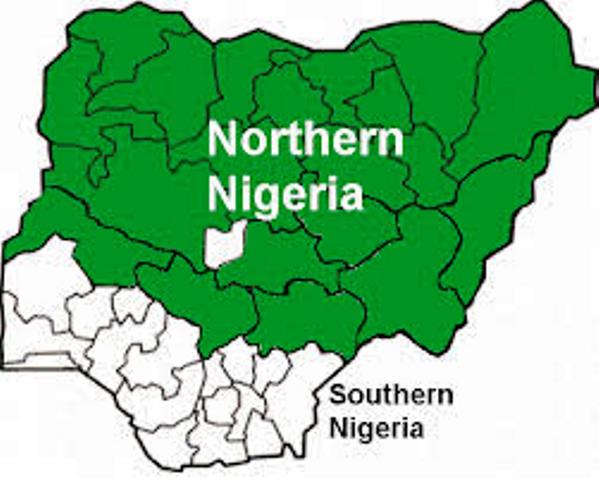Full List of Northern States in Nigeria
The Northern Region of Nigeria is a vast and diverse region, home to over 100 million people. It is made up of 19 states, each with its own unique culture, history, and economy.

Map Showing The Northern States in Nigeria
The Northern States are known for their beautiful landscapes, rich cultural heritage, and friendly people. They are also home to some of Nigeria’s most important economic and political centers.
In this blog post, we will take a closer look at the Northern States in Nigeria. We will discuss their history, culture, economy, and tourism potential. We will also highlight some of the most notable people from the Northern States.
HOW MANY STATES ARE IN THE NORTHERN REGION OF NIGERIA?
There are 19 states in the Northern Region of Nigeria. They are divided into three zones: the North Central Zone, the North East Zone, and the North West Zone.
WHAT ARE THE NAMES OF THE NORTHERN STATES IN NIGERIA?
The following is a list of the Northern States in Nigeria, grouped by zone:
NORTH CENTRAL ZONE
The North Central Zone is the most ethnically and religiously diverse of the three Northern zones. It is home to the Hausa, Fulani, Nupe, Tiv, Igala, and Idoma people. The majority of the population is Muslim, but there is also a significant Christian minority.
The North Central Zone is also home to some of Nigeria’s most important cultural and historical sites. These include the Nok Terracotta Figurines, and the Jos Plateau. Below are states within the North Central zone.
- Benue State
- Federal Capital Territory (FCT)
- Kogi State
- Kwara State
- Nasarawa State
- Niger State
- Plateau State.
NORTH EAST ZONE
The North East Zone is the most arid of the three Northern zones. It is home to the Kanuri, Hausa, Fulani, and Marghi people. The majority of the population is Muslim.
The North East Zone is also home to some of Nigeria’s most important economic centers. These include the city of Maiduguri and the capital of Borno State. The states in the North East geo-political zone in Nigeria include:
- Adamawa State
- Bauchi State
- Borno State
- Gombe State
- Taraba State
- Yobe State
NORTH WEST ZONE
The North West Zone is the most densely populated of the three Northern zones. It is home to the Hausa, Fulani, and Kanuri people. The majority of the population is Muslim.
The North West Zone is also home to some of Nigeria’s most important agricultural and commercial centers. These include the cities of Kano, Kaduna, and Sokoto. The north-western states in Nigeria include:
- Kaduna State
- Katsina State
- Kano State
- Kebbi State
- Sokoto State
- Zamfara State.
WHAT ARE THE CAPITAL CITIES OF THESE NORTHERN STATES IN NIGERIA?
Here’s a tabular representation of the capital cities of the 19 Northern States in Nigeria:
| State | Capital City |
|---|---|
| Benue | Makurdi |
| Federal Capital Territory (FCT) | Abuja |
| Kogi | Lokoja |
| Kwara | Ilorin |
| Nasarawa | Lafia |
| Niger | Minna |
| Plateau | Jos |
| Adamawa | Yola |
| Bauchi | Bauchi |
| Borno | Maiduguri |
| Gombe | Gombe |
| Taraba | Jalingo |
| Yobe | Damaturu |
| Kaduna | Kaduna |
| Katsina | Katsina |
| Kano | Kano |
| Kebbi | Birnin Kebbi |
| Sokoto | Sokoto |
| Zamfara | Gusau |
This table provides a quick reference to the capital cities of the Northern States in Nigeria.
HISTORY AND CULTURE OF THE NORTHERN STATES IN NIGERIA
The Northern States of Nigeria have a long and rich history, dating back to the Nok culture, which flourished in the area from the 5th century BC to the 2nd century AD. The Nok culture was known for its terracotta sculptures and its ironworking technology.
In the 9th century AD, the Hausa people began to arrive in the Northern States. The Hausa people are a diverse ethnic group who speak the Hausa language. The Hausa people established a number of powerful kingdoms, including Kano, Katsina, and Zaria.
In the 19th century, the Fulani people, a nomadic pastoralist group, began to migrate to the Northern States. The Fulani people were led by a charismatic leader named Usman dan Fodio. Usman dan Fodio launched a jihad, or holy war, against the Hausa kingdoms. He was successful in overthrowing the Hausa kingdoms and establishing the Sokoto Caliphate.
The Sokoto Caliphate was a large and powerful Islamic empire that ruled over the Northern States of Nigeria for over a century. The Sokoto Caliphate was known for its Islamic scholarship and its centers of learning.
In the late 19th century, the British began to colonize Nigeria. The British defeated the Sokoto Caliphate in 1903 and established the British protectorate of Northern Nigeria.
Nigeria gained its independence from Britain in 1960. The Northern States have played an important role in Nigerian politics since independence.
The Northern States of Nigeria have a diverse culture. The Hausa people are the majority ethnic group in the Northern States, but there are also a number of other ethnic groups, including the Fulani, Kanuri, Nupe, Tiv, and Igala. The majority of the population in the Northern States is Muslim, but there is also a significant Christian minority.
The Northern States are known for their rich musical tradition. Some of the most popular musical genres in the Northern States include Hausa music, Fulani music, and Kanuri music.
The Northern States are also known for their traditional arts and crafts. Some of the most popular traditional arts and crafts in the Northern States include pottery, weaving, and metalworking.
ECONOMY OF THE NORTHERN STATES IN NIGERIA
The economy of the Northern States of Nigeria is largely based on agriculture. The main crops grown in the North include millet, sorghum, cowpea, and peanuts. The North is also home to a significant livestock industry.
In recent years, the economy of the Northern States has been growing rapidly. This is due in part to the discovery of oil and gas in the Niger Delta. The North is also benefiting from the country’s growing economy and its increased investment in infrastructure.
TOURISM IN THE NORTHERN STATES IN NIGERIA
The Northern States of Nigeria are home to a number of tourist attractions. These include the following:
- Nok Terracotta Figurines: These figurines are some of the oldest known terracotta sculptures in sub-Saharan Africa. They were discovered in the Nok culture, which flourished in the area from the 5th century BC to the 2nd century AD.
- Ancient city of Kano: Kano is one of the oldest cities in Nigeria. It was founded in the 9th century AD and was a major center of trade and culture during the medieval period.
- Jos Plateau: The Jos Plateau is a mountainous region in central Nigeria. It is known for its beautiful scenery and its diverse wildlife.
- Kainji National Park: Kainji National Park is a large national park located in Niger State. It is home to a variety of wildlife, including elephants, lions, and buffalo.
- Yankari National Park: Yankari National Park is a large national park located in Bauchi State. It is home to a variety of wildlife, including elephants, lions, and hippopotamuses.
EDUCATION IN THE NORTHERN STATES IN NIGERIA
The Northern States of Nigeria have made significant progress in education in recent years. However, there is still a significant gap between the North and the South in terms of educational attainment.
The Northern States have a number of top federal universities, including Ahmadu Bello University in Zaria, Bayero University Kano in Kano, and the University of Jos in Jos.
NOTABLE PEOPLE FROM THE NORTHERN STATES IN NIGERIA
- Aminu Kano: Aminu Kano was a politician and a leader of the Northern Elements Progressive Union (NEPU). He was born in Kano State. Kano was a vocal critic of the British colonial government and the Northern aristocracy. He was also a champion of the poor and the oppressed. Kano died in 1983.
- Abubakar Tafawa Balewa: Abubakar Tafawa Balewa was the first Prime Minister of Nigeria. He was born in Bauchi State. Balewa was a member of the Northern People’s Congress (NPC). He was a moderate politician who worked to bridge the divide between the North and the South. Balewa was assassinated in a coup in 1966.
- Nnamdi Azikiwe: Nnamdi Azikiwe was the first President of Nigeria. He was born in Nnewi, Anambra State, but he was educated in the North. Azikiwe was a journalist and a nationalist who fought for Nigeria’s independence. He was known as “Zik of Africa” and “the father of Nigerian nationalism.” Azikiwe died in 1996.
- Ahmadu Bello: Ahmadu Bello was the first Premier of Northern Nigeria. He was born in Sokoto State. Bello was a member of the NPC. He was a traditional ruler and a conservative politician who worked to maintain the North’s autonomy. Bello was assassinated in the same coup that killed Balewa.
- Shehu Shagari: Shehu Shagari was the second President of Nigeria. He was born in Sokoto State. Shagari was a member of the NPN. He was a moderate politician who tried to unite the country after the civil war. Shagari was overthrown in a coup in 1983.
- Ibrahim Babangida: Ibrahim Babangida was the eighth Head of State of Nigeria. He was born in Niger State. Babangida was a military officer who came to power in a coup in 1985. He ruled Nigeria for eight years. Babangida is known for his political reforms and his economic policies.
- Sani Abacha: Sani Abacha was the ninth Head of State of Nigeria. He was born in Kano State. Abacha was a military officer who came to power in a coup in 1993. He ruled Nigeria with an iron fist until his death in 1998.
- Abdulsalami Abubakar: Abdulsalami Abubakar was the tenth Head of State of Nigeria. He was born in Niger State. Abubakar was a military officer who came to power after Abacha’s death. He ruled Nigeria for one year and oversaw the transition to democracy in 1999.
- Muhammadu Buhari: Muhammadu Buhari was the eleventh President of Nigeria. He was born in Katsina State. Buhari was a military officer who came to power in a coup in 1983. He was overthrown in a coup in 1985. Buhari was elected President of Nigeria in 2015 and got re-elected in 2019.
These are just a few of the many notable people from the Northern States of Nigeria. The North has produced a number of leaders, scholars, and artists who have made significant contributions to Nigeria and the world.
